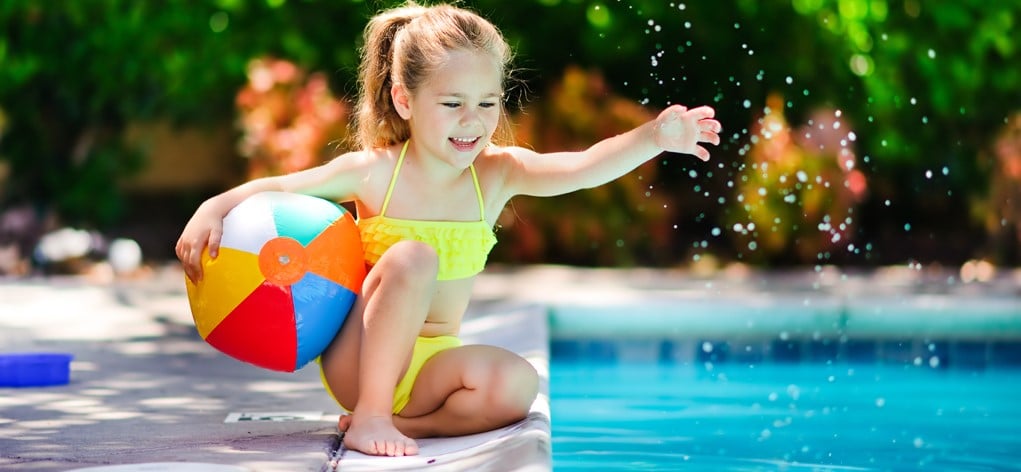Written By: William Keele
Pools are one of the best things about summer. They keep your kids happy, entertained, and active. However, when water is involved, there are potential dangers that the whole family should be aware of. Approximately 388,000 people die each year from drowning (World Health Organization). Whether you have a pool of your own, a neighbour’s pool to splash in, or one within the community, make sure that everyone within your household understands these pool safety tips.
1. Reinforce Pool Rules
Pool rules are incredibly important. Everyone that enters your pool should know that if they do not follow the rules, they will no longer be allowed to swim at your house. Even if you don’t have a pool, you want to provide your child with safety tips that they can use when swimming at a friend’s house.
- No diving in shallow or aboveground pools.
- No running around the pool.
- No electrical devices or appliances near the pool.
- No swimming without adult supervision.
2. Install a Safe Fence Around your Pool
Children are very curious, and they can sneak outdoors without you ever knowing it. Many cities in Canada require that you have a fence on your property if you have a private pool. However, each region has specific requirements, which should always be taken into consideration. While a fence will deter others form entering your pool from the outside, they very rarely provide a block between your house and the pool itself. To ensure that you have the safest fence possible, here are some things to consider:
- Install a pool fence around the pool, as well as around your backyard
- Ensure the fence has a minimum height of 1.2 metres.
- Have a self-closing gate.
- The fence should be climb-resistant.
3. Start Swimming Lessons as Soon as Possible
Swimming lessons are one of the best ways to protect your child from drowning. Lessons are age-specific, and will teach your child everything from the basics to floating and diving. It is recommended to get your children into swimming lessons as soon as possible. There are even some that teach infants valuable water survival skills, such as how to flip over in the water and float. Needless to say, these short, once-a-week lessons may save a life, and should never be underestimated. Some things to consider prior to placing young children in swimming lessons are:
- Any physical limitations your child may have (special swimming lessons may be required).
- Emotional maturity (there are swimming lessons for all ages).
- Health concerns such as pool chemicals, infections, swallowing water, etc.
4. Create a Plan for Water Emergencies
Everyone within your household should be able to respond to any emergencies that occur in your pool. This could be as simple as running to the neighbours if an adult is injured, or calling 911. The older your children get, the more elaborate your safety plan should be. Here are some additional things to consider:
- Take a CPR course as a family.
- Take a water safety course.
- Keep a well-stocked first aid kit by the pool.
Having a pool can be a liability, but with swimming pool safety tips, you can decrease the risk and ensure that everyone stays safe.






